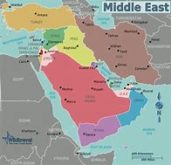Iran-HRM – The Iranian authorities should end their cruel campaign of harassment and intimidation against the families of detainees who have died in detention under suspicious circumstances, Amnesty International, the Centre for Human Rights in Iran, Human Rights Watch and Justice for Iran said today.
In a joint statement, the human rights organizations expressed concerns that bereaved families are facing reprisals for seeking truth and justice and renewed their calls on the authorities to establish an independent commission of inquiry and invite the UN Special Rapporteurs on torture and other cruel, inhuman or degrading treatment or punishment and on extrajudicial, summary or arbitrary executions to visit.
The organizations have further added: “The authorities should ensure that if there is sufficient evidence of unlawful deaths in detention, the perpetrators responsible will be prosecuted and punished.”
The statement reads in part: “The authorities should also immediately lift the travel ban against Maryam Mombeini, the wife of Iranian-Canadian environmentalist Kavous Seyed-Emami who died in detention in
early 2018, and allow her to reunite with her family in Canada.
Since December 2017, there have been at least five deaths in custody. In three of the cases – those of Sina Ghanbari, Vahid Heydari and Kavous Seyed-Emami – the authorities announced immediately that the deaths were the result of suicide – claims which family members and human rights groups strongly disputed. In the case of the fourth individual, Saro Ghahremani, the authorities claimed that he was shot during the course of an armed confrontation with security forces. His family also disputed the official claim, saying that he died in custody after he was arrested during the nationwide protests of December 2017 and his body bore marks of torture.
The most recent case concerns Mohammad Raji, a member of Iran’s persecuted Gonabadi Dervishes community, who was arrested on 20 February, following the violent dispersal of a peaceful protest by Gonabadi Dervishes in Tehran. His family were informed by the police 15 days later on 4 March that he had died from the injuries caused by repeated blows to his head.
The details concerning the exact manner, place and time of death and all of the surrounding circumstances remain unclear. The authorities have only stated that he was fatally injured during the clashes that occurred between protesting Dervishes and security forces on 19 February and he died either during his transfer to Baqiyatallah Hospital or after his admission to hospital. His family have emphasized that Mohammad Raji was injured but alive at the time of the arrest and expressed outrage at the concealment of his fate and whereabouts for 15 days following his arrest, and the authorities’ refusal to clarify the sequence and timing of events that led to his death.
In all five cases, Iran’s judicial and security authorities have threatened the bereaved families in a bid to silence their pleas for truth and justice. They have also engaged in what seems to be an orchestrated campaign to cover up any evidence of torture, other illtreatment, and unlawful deaths while defaming the deceased publicly.” detention, the perpetrators responsible will be prosecuted and punished.
 Shabtabnews In this dark night, I have lost my way – Arise from a corner, oh you the star of guidance.
Shabtabnews In this dark night, I have lost my way – Arise from a corner, oh you the star of guidance.


